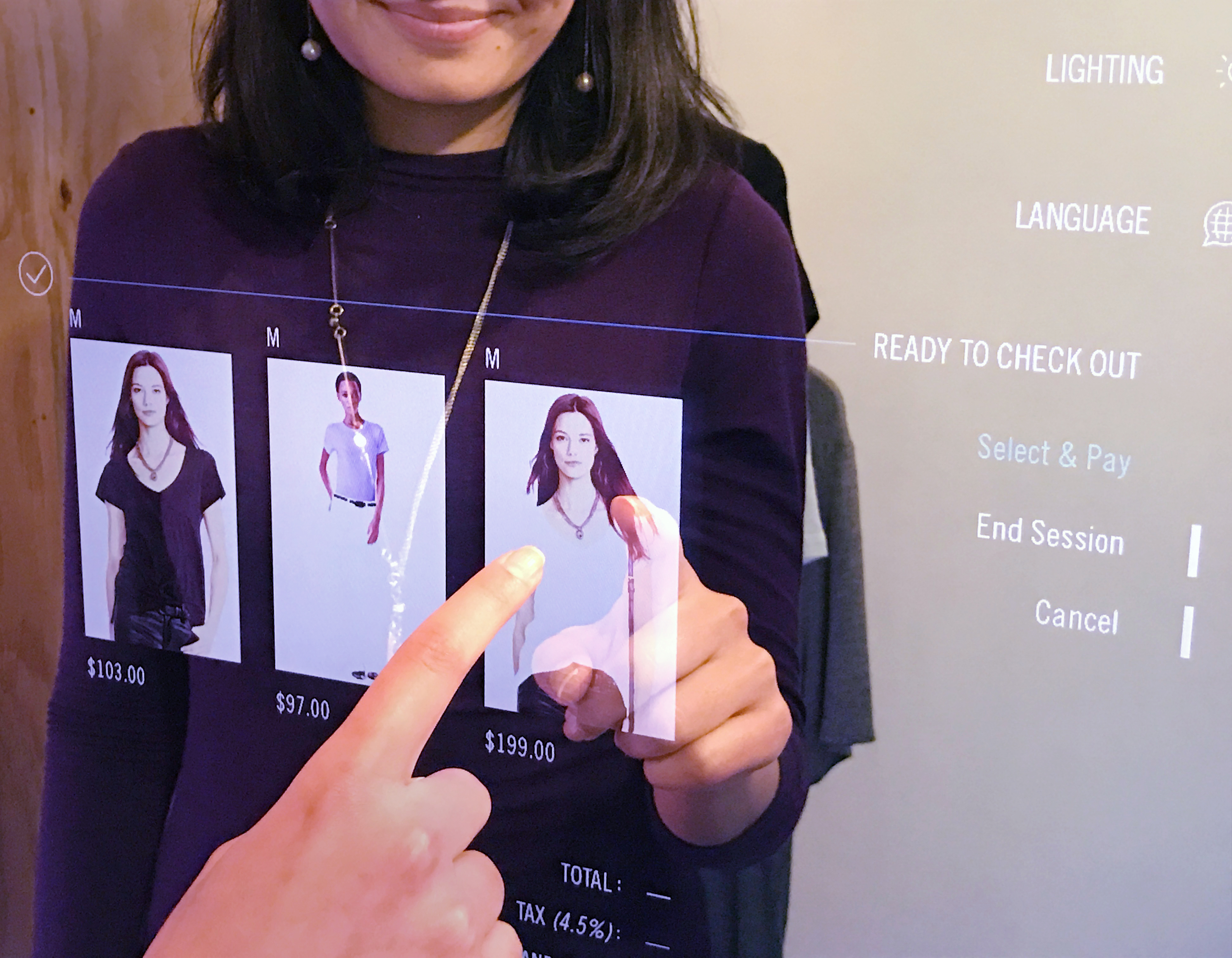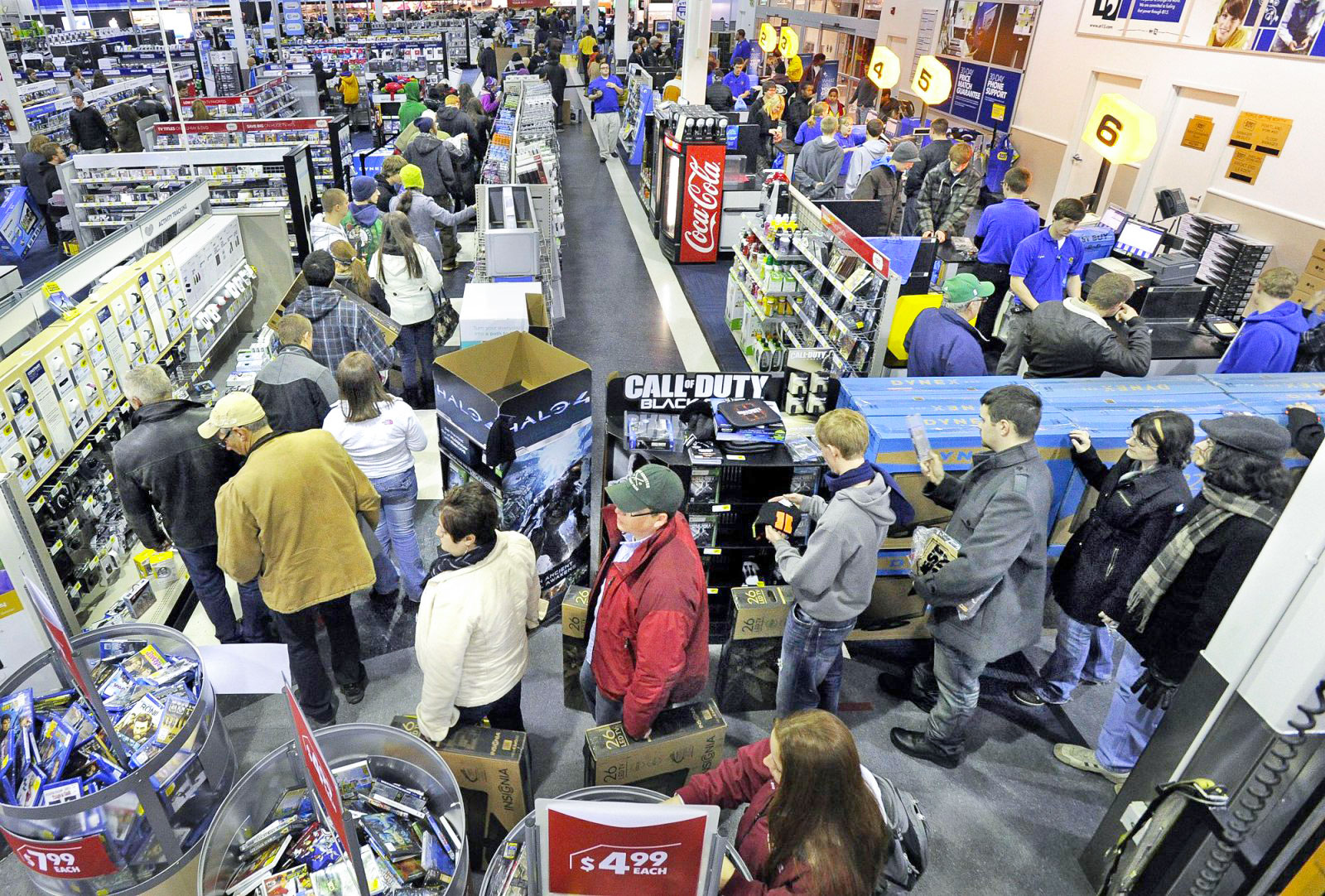[ad_1]
For instance, shelves of shoes will also show if each design is available in your size or if you have to go online to find it. In future fitting rooms, the mirror might welcome you back when you walk in, and it’ll already know your preferred fit, cuts, brands and sizes so it can predict what you might like to try on. If you’ve bought a particular shade of foundation, a screen on the shelf can show you looks that are mapped to that hue. When you drive up to a gas pump, it will already know which credit card you’ll be using because it detected and authenticated your license plate and identity.

These scenarios are just examples that form part of Healey Cypher’s vision of the retail store of the future. He’s the CEO of San Francisco-based startup Oak Labs, which calls itself a “retail innovation company” and has been working with brands like Ralph Lauren and Rebecca Minkoff to embed tech in their stores for unique shopping experiences.
“It’s not a lot of screens or holograms or robots taking your hands guiding you along,” Cypher told Engadget. He believes it will be tech that you can’t see but that works behind the scenes to show you information that you need.
That seamlessness extends to the payment process as well. With all the infrastructure that will have been embedded into various surfaces throughout the store, checkout counters could eventually disappear altogether.
“From the window of the storefront all the way to the fitting room environment… any surface could be a purchase interaction or counter,” said Stephane Wyper, senior vice president of new commerce and partnerships at Mastercard. You could pay for your goods no matter where you are in (or even outside) the store and that could eliminate the lines that have long been one of the worst parts of brick-and-mortar shopping.

To enable a smooth experience, companies are going to need data, such as your shopping history, your size and even medical details like your allergies or dietary restrictions. And if you want payments to be seamless, you’ll also have to provide your credit card information.
But are shoppers going to want to give stores access to personal information? Cypher and Wyper agree that they might — with the right benefits, anyway.
Wyper says consumers will share a certain amount of information if the convenience outweighs a loss in privacy. “Retailers have to figure out how to use [the data] and also ensure the consumer has control over the types of experiences and benefits they want in return for sharing their information,” he said.
To Cypher, the advantage is clear. “Time is increasingly the currency we value,” he said. “The extent to which you can save me time on the repetitive stuff is going to be a hugely important benefit.”
Cypher can think of two examples where consumers are happy to share personal information with companies in exchange for convenience and time saved. “We’re not far off from when someone comes in and they’re going to want the experience to be like Uber, where the payment is totally invisible.”
Amazon has also made it so convenient for users to stay logged in that people don’t think about signing out anymore. “Look at Amazon Go,” Cypher said. “It’s annoying to check in at first, but once you do that you’ll find that there’s the benefit in reduction of cognitive load too.” This sales model already works on the company’s “One Click Buy” service. “You know all the basics on Amazon,” he added. “It knows your credit card and shipping address. You know how fast it’s going to ship.” That convenience, Cypher says, makes people flock to Amazon even if it doesn’t have the cheapest prices.
In fact, that convenience has lured so many to shop online that it may seem like physical stores are on their way to extinction. Just look at Macy’s, JC Penney, Sears and KMart — all have announced closures of hundreds of outlets this year. But experts agree that brick-and-mortar stores are here to stay. As Brian Kavanagh, senior director of retail insights at The Hershey Company, puts it in an interview, “While technology will enable less friction, there are still core human truths that remain relevant: People place a high value on experiences, they seek social connection and want to avoid the routine and mundane.”
Wyper agrees. “Physical stores are still an important ingredient of the retailer playbook,” he said. They’re just due for a reinvention.
We don’t know yet know exactly how retailers will customize their experiences for shoppers and what they’ll do with customers’ data. But in many ways, the future of shopping is already here. We already willingly hand over personal information to the likes of Uber, Amazon, Seamless and iTunes, all for the sake of convenience. Targeted advertising already exists online and arrives in our mail, too. Putting all the pieces together thoughtfully isn’t an easy feat, though, and the road to a coherent, secure and useful experience is long, and fraught with both legal and technological challenges. Still, when that happens, real-life shopping is going to feel a lot more like it does online.
Images: Oak Labs (Onscreen selection); Gabe Souza/Portland Press Herald via Getty Images (Checkout line)
Source link
 Tech News code
Tech News code


